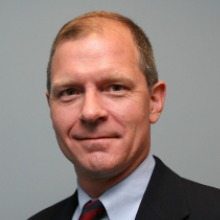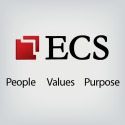
The WashingtonExec had the chance to talk with Paul Christman, President and CEO of Quest Software’s Public Sector, about biometric capabilities on mobile devices and managing internal threats before tackling external security issues.
Christman also spoke of not ruling with an iron fist and the buzzwords he chooses to use in his organization.
WashingtonExec: Can you tell me a little about your role at Quest Software and your background in IT?
Paul Christman: I am the President and CEO of Quest Software Public Sector, Inc – the wholly owned subsidiary within Quest Software, our parent company. Our role within the organization is to sell and support software solutions in the public sector space.
WashingtonExec: You are a tech guy. What’s your favorite buzzword?
Paul Christman: I am a tech guy and have been since the beginning. But I have a liberal arts background and I tell you this because I despise buzzwords. Buzzwords get in the way of us having real, human conversations and instead, lead to talking about the latest bright, shiny object.
Words like integrity and excellence and accountability are my buzzwords. I dislike words like “cloud” because they lose their meaning, but I use words like integrity and excellence and accountability inside my organization. Offering explanations that human beings understand cuts through the clutter.
WashingtonExec: In that case, what is your least favorite buzzword?
Paul Christman: These days it is “cloud.” You need to define what you mean by cloud. It’s a word that gets put on lots of technical things and then people all of a sudden think the components are more valuable. The concepts that make cloud computing possible have been around since the ‘60s. This is nothing new.
WashingtonExec: How big is mobility on the large scale of things? Is it as ground breaking or innovative as cloud computing?
Paul Christman: It’s big. It’s as big as cloud or some of the other trends in the industry. Mobility puts information where the person is, rather than vice versa.
Mobility is what allows you to connect into several other important technologies. Mobility is easy for people to visualize because you have a smart device in your hand. But it’s the things behind the handheld device that you don’t see that are pretty transformative – big data, accessing large amounts of data with powerful software, delivering this over high speed wireless networks – those sorts of things are just as important as the device in your hand.
—————————————————————————-
“The public sector believes that you don’t have to have monolithic, dinosaur application development cycles. You can do it rapidly. You can do it quickly. Those ideas of getting public input from interested parties is exciting for solving tough issues having to do with gigantic amounts of data.”
—————————————————————————
WashingtonExec: Do you think the explosion of social media and social networking has caused big data to become a priority or are the two unrelated?
Paul Christman: Recently I had a conversation with a gentleman from the Office of the National Coordinator. We discussed the idea of crowd sourcing applications, open source, to help solve health IT problems in the federal government. It’s not social media like Facebook or LinkedIn, but it’s using the Internet in a novel way to solve problems. The public sector believes that you don’t have to have monolithic, dinosaur application development cycles. You can do it rapidly. You can do it quickly. Those ideas of getting public input from interested parties is exciting for solving tough issues having to do with gigantic amounts of data.
WashingtonExec: How would you describe your leadership style?
Paul Christman: Many new leaders believe leadership involves command and control. This works for routine, monotonous, repetitive tasks.
The people I manage are smart, creative, ambitious and motivated. They are trying to address complicated business and technology issues. Therefore my leadership style has to be about motivation, empowerment, education and enablement. It took me a while to learn that, but eventually, you get to the point where you believe that if you make people happy they will work hard.
WashingtonExec: Where do you hope to see Quest Software in three to five years?
Paul Christman: Quest, as a company has fantastic potential. We have the right components – both people and product – to solve what I would call enterprise or infrastructure grade problems.
What I see in three to five years is those solutions knitted together into enterprise solutions that our customers use to solve many problems. We make the mission possible by putting together all of our point solutions into a coherent enterprise solution.
WashingtonExec: Where do you think mobility will be in ten years?
Paul Christman: Eventually, we are going to reach a point of diminishing returns on the miniaturization of the display device. One of the things that we will realize is that there is an optimal size and smaller doesn’t necessarily mean better. The biggest problem we will have to tackle in the next few years is authentication.
Biometric capabilities are being built into these devices now, facial recognition is being toyed around with, and these capabilities will fold into security. The thorny issue is identity – who are you, what rights do you have. On fixed-wire networks it is relatively straightforward, but on mobile devices it becomes much more challenging.
WashingtonExec: Would you say that cyber security is the biggest obstacle that you have now?
Paul Christman: Yes, cyber security is a huge challenge in the public sector. The first problem is how you manage the identities within your organization. I believe the internal identity management problem is just as important as the external cyber threat. We emphasize taking care of your own house first. You can’t worry about what’s happening at the neighbors’ house, you can’t worry about what’s happening outside, but you can take care of your own house. There is no excuse for not measuring and managing internal identities. External folks you can’t control, internal folks it’s just a matter of time, money, resources and attention.
WashingtonExec: What was your first job?
Paul Christman: My first paying job, I was a teenager and I worked on a farm. I was doing everything from picking vegetables to moving irrigation pipes to driving a truck. Those days of hard physical labor were very instructive and helpful. I had a blast – I loved it. I like seeing things grow. I like seeing things done. I like seeing things accomplished.
To this day I enjoy working in the garden, and planting and growing things. But I knew that wasn’t what I wanted to do, which made me work harder in school and focus on achievement and excellence.


